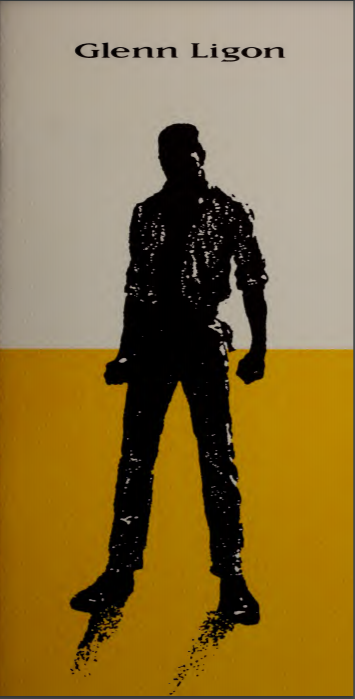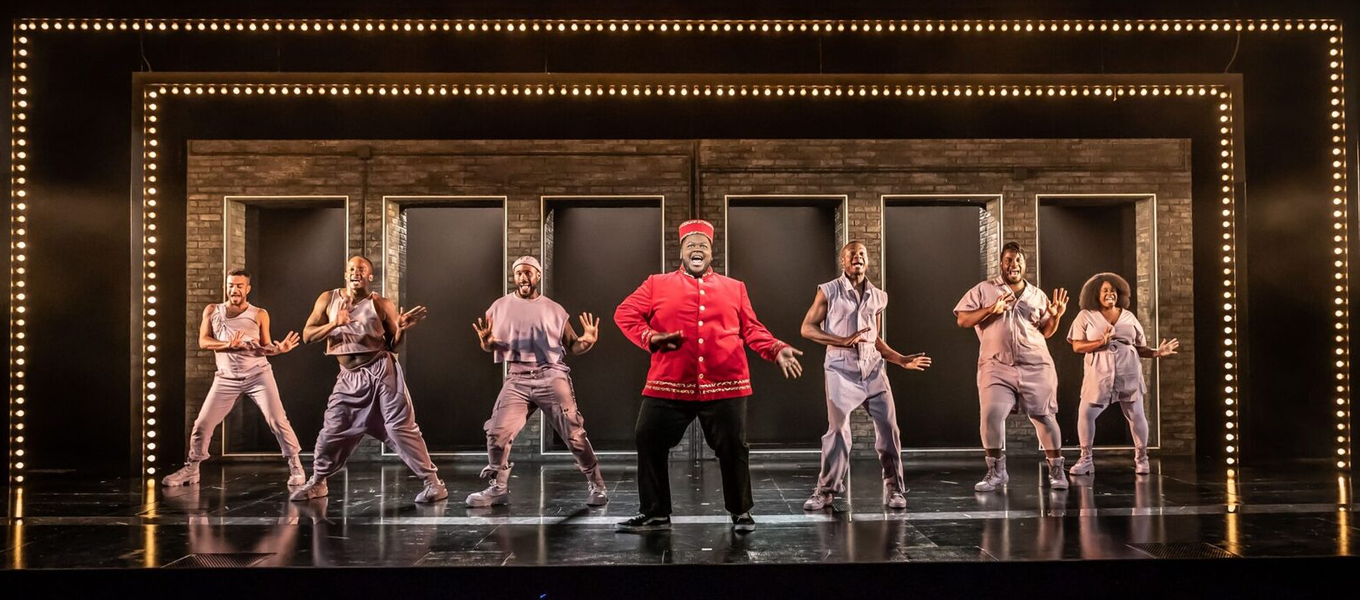a strange loop: a familar pattern
‘the challenge of the twenty-first century is not to demand equal opportunity to participate in the machinery of oppression’.
Angela Davis
Achieving viable means of telling and distributing Black queer stories will require finding new incentives, structures and forms beyond the mainstream. This may mean eschewing the pursuit of mass audiences in favour of a focus on reaching the right audience for the message,
In this exquisitely connected world, it’s never a question of ‘critical mass.’ It’s always about critical connections
Grace Lee Boggs
Currently, commercial markets in art lead us to behave like those punters seeking half price Ultra HD TVs at a Black Friday sale. There must be alternatives to engaging in the unedifying act of trampling over each other to gain a modicum of mainstream media attention that only results in ceding power to those who already have the resources, while abandoning our peers to ‘their own devices’.
It should not be lost on us that just two years ago the Barbican Centre boss stood down in response to accusations of failing to address institutional racism. The efforts to progress meaningful change have not all gone smoothly for the new management team. During the opening weeks of A Strange Loop‘s run at the Barbican Centre, racism was named as the reason that Resolve Collective’s exhibition ‘them’s the breaks’ was terminated by the artists,
Our experiences at the Barbican had led us to a frustrating, yet unsurprising, conclusion: that today, despite the best intentions of many good individuals within the institution, young Black artists such as ourselves and other peers who seek to platform their communities, cannot be guaranteed to be treated with respect and dignity when working there
Resolve Collective Statement 23 June 2023
Audiences have a role to play in theatre beyond consumers, it is one of the distinguishing features of the art form. Merely noting our discomfort, using outrage to avoid facing our trauma, blaming the artist for ‘washing our dirty linen in public’, or heading for the exit and the uneasy comfort of temporary safety, feel like an inadequate answer to Jackson’s challenge; his demand for growth. Instead, we might take moments of visibility as an opportunity to act with urgency in making space for us to have the necessary conversations to engage in the healing that would free us from limiting concerns about what white or heterosexual audiences think about our Black queer lives.
To stretch the metaphor, however justified our objections to public laundry, they do not lead to cleaner sheets. By the same measure, it cannot be enough to simply recount our trauma for the entertainment of the white chatterati at £80 a ticket, while claiming that you are engaged in liberatory struggle. Those of us who remain prey to ‘the sacred constructions of silence’ (Essex Hemphill), also know that
Silence kills the soul; it diminishes its possibilities to rise and fly and explore. Silence withers what makes you human. The soul shrinks, until it’s nothing. It is necessary to constantly remind ourselves that we are not an abomination.
Marlon Riggs
What audiences do with visibility matters, at least as much as achieving it in the first place.
The superlative staging and London transfer of A Strange Loop, is a further step forward in a wave of Black gay theatre-makers making waves in the US, including actors Billy Porter and Colman Domingo, Robert O’Hara/Jeremy O. Harris (Slave Play, Bootycandy), Matt Gould/Griffin Matthews (Witness Uganda), Donja R Love (one in two), and now-veteran, Tarrel Alvin McCraney (The Brother/Sister Plays, WigOut!).
The UK is increasingly recognising and supporting Black queer theatre-makers too. In Black British Queer Plays and Practitioners: An Anthology of Afriquia Theatre Lynette Goddard and Mojisola Adebayo document the journey so far, while a coterie of talent creates for the stage including Travis Alabanza, Danny Lee Wynter, Luke Elliott, Campbell X, Phillippe Cato, Tristan Fynn Aiduenu, Cassiopeia Berkeley-Agyepong, Keisha Thompson, Dexter Flanders, and Jamal Gerald are creating and innovating with Black queer storytelling through the theatre medium on this side of the Atlantic.
Art has the potential for engaging us in dialogue, challenging our thinking, and building new connections. More can be done to turn this intention into reality. A Strange Loop, is a significant work that, understood as part of a wider cultural turn, could have impact on the ways in which we address the systemic and structural patterns of discrimination and disadvantage faced by Black queer people. However, if we do not nurture spaces for dialogue between Black queer folk, the chances of creating shared meaning or shared action are minimal. Further, the chances of making connections between significant voices/art/works, raising our ambition to exercise our critical lens beyond that which can be addressed by the beauty-contest panel of influencers grateful for the clicks, and that someone (anyone?) noticed our existence, or taking steps towards shaping a movement grounded in Black queer experiences, are made ever more remote.
Connecting A Strange Loop beyond theatre to television e.g. Donald Glover’s Atlanta, Janine Nabers’ Swarm and Watchmen, Boots Riley’s I’m a Virgo (Michael R Jackson wrote an episode and co-produced the series about a giant Black teen), Terence Nance’s Random Acts of Flyness, or to literature e.g. JK Chukwu (The Unfortunates), Janelle Monae (The Memory Librarian), or Rasheed Newson (My Government Means To Kill Me) suggests we are witnessing a new wave of Afro surrealist thought that question the neo-liberal approaches that have promised so much, yet delivered so little towards Black liberation. These auteurs are often as critical of Tyler Perry’s approach as Michael R Jackson. There are even connections to be found under the same roof as the performances of A Strange Loop – with the Carrie Mae Weems’ exhibition work at the Barbican this summer, as well as with the fate of the dismantled Resonance Collective’s exhibition.
Noting these resonances and connections make even more evident the folly of hanging our hopes for liberation on visibility alone. Visibility must be harnessed for dialogue, dialogue for learning, learning for action.
In 1992, Black gay conceptual artist, Glenn Ligon held his first UK exhibition at the Barbican. Ligon’s exhibition, ’Good Mirrors are Not Cheap’ was based on a poem by Audre Lorde of the same name. In it, she warns of the danger of misaligned criticism. Anger directed at the artist for reflecting the uncomfortable truth, rather than anger at the structures that create the negative elements of that truth is described as ‘a waste of time’. The poet notes that repeating this mistake also risks damaging those surrounding/supporting the mistaken critic, ‘if I am beside that self/ you destroy me‘.

In the same year as the Ligon show, Essex Hemphill, wrote in his poem Ceremonies about a movement created ‘For My Own Protection‘. In 1969 James Baldwin asked whether the Price is too High. In 1926, Langston Hughes, Zora Neale Hurston, Richard Bruce Nugent, Wallace Thurman, Aaron Douglas, Gwendolyn Bennett, and Countee Cullen declared in the introduction to Fire! their shared intention to ‘express our dark-skinned selves without fear or shame‘. The loops keep looping.
Loops, strange or familiar, return us to places we have already been, unless or until we can interrupt them. Usher returns to where he started, to declare, ‘my only problem is with the pronoun ‘I’ ‘. Michael R Jackson’s attention to detail as a writer enjoins us to take each couplet seriously, particularly in the final song of the show. Is Usher’s ultimate tragedy that he internalises his challenges, that he seeks to find all the answers within himself? His redemption it seems, results from his acknowledgement and empathy for the suffering of another Black queer man, ‘Can I get a witness there, choir?‘
Perhaps the only way to get off A Strange Loop‘s solipsistic merry go round, and move forward, is through understanding the shared nature of the human condition and making connections with more than our internal voices – however tuneful, funny, or attractive they may be. If we consistently fail to understand Black queer visibility in art as a tool for movement building, rather than solely for individual aggrandisement, or to demand art disruptive to systems designed to oppress us rather than legitimising of them, our problems with the pronoun ‘we’ rather than ‘I’, will leave us tied forever to our own all-too familiar, strange loop.



Leave a Reply